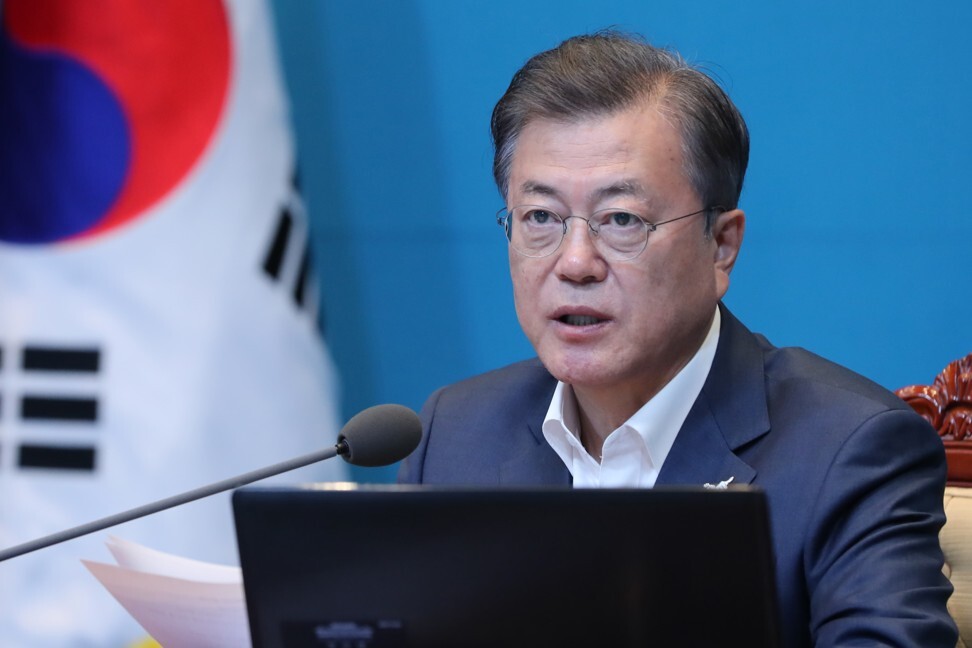
South Korea to make 5G and AI centrepieces of economy’s ‘New Deal’ in post-coronavirus era
- The initiative by newly re-elected South Korean President Moon Jae-in is expected to involve large-scale projects to boost jobs and innovation
- Plans include creating a fund to foster AI development, build sites for robot testing and support the roll-out of a nationwide 5G network
The government, in a statement on Thursday, said it will promote AI and the next-generation wireless technology to support the economy once the coronavirus is brought under control.
The statement did not say how much money would be spent, but that funding would come from a third emergency budget being drafted now and from annual budgets through 2022.

Moon compared his vision to the New Deal launched by President Franklin Roosevelt in the 1930s to help the United States recover from the Great Depression.
Economist Kim Jung-sik at Seoul’s Yonsei University said Moon’s plan was designed to help support newer, internet-based businesses, but probably would not involve the kind of spending that the term New Deal would seem to imply.
“It’s different from the traditional New Deal which seeks massive jobs with massive spending,” he said. “South Korea’s financial ammunition is increasingly limited after a series of spending measures to stimulate the economy.”
The project comes as South Korea’s trade-dependent economy braces for more fallout from the pandemic. Even though the country has so far managed to bring its own outbreak under control, March was its worst month for job losses since the global financial crisis, with part-time workers and young people among the hardest-hit.
As part of its New Deal, South Korea plans to create a fund to support AI development, build sites for robot testing and help businesses launch new services that make use of data, according to the statement. The government said it will also support construction of a nationwide 5G network.
The goal is to enhance South Korea’s economic growth potential and create sustainable jobs for future generations, the government said, adding that more specifics will be announced in June.
“The New Deal is essentially an industrial growth strategy with jobs as a priority,” said economist Joseph Han at the Korea Development Institute. “It could be a stepping stone for young people struggling to get more than temporary, short-term employment.”

